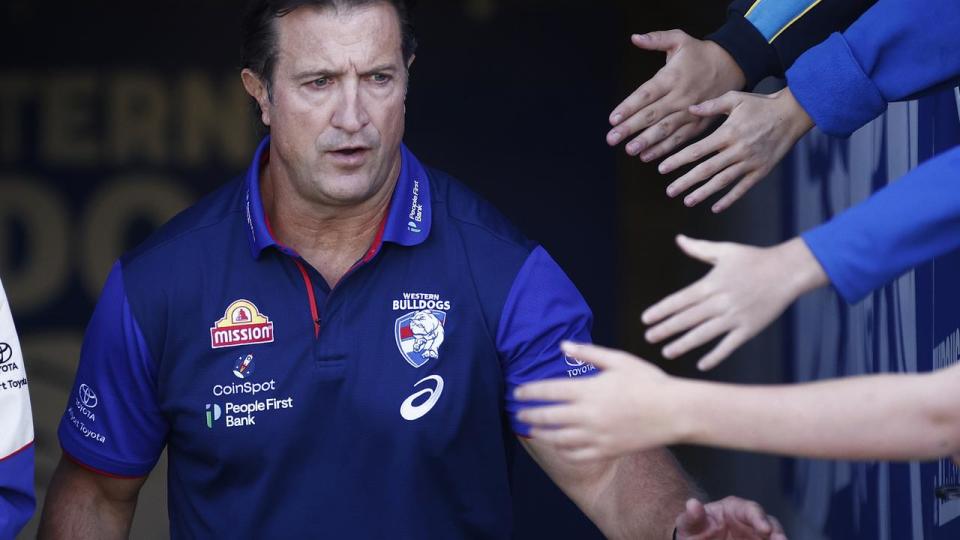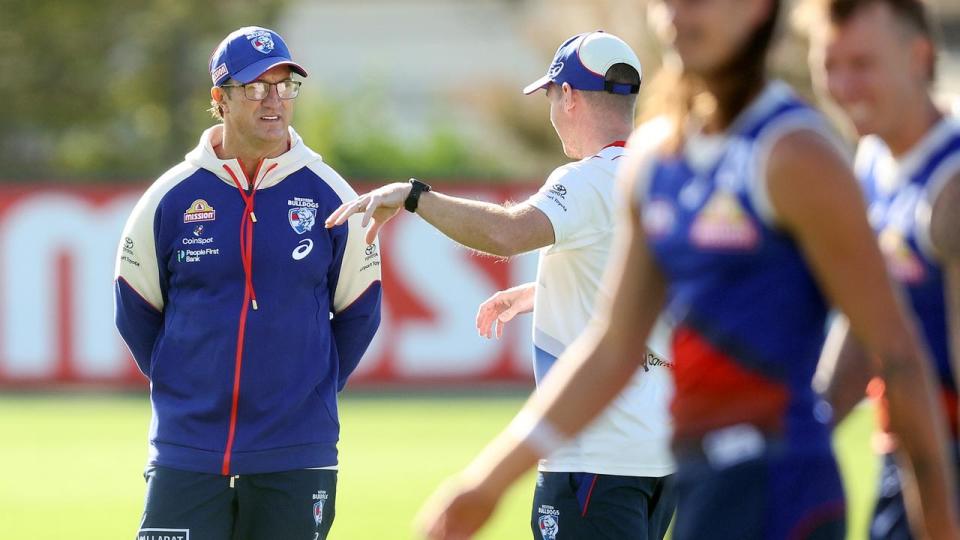Premiership coach wants drug policy dumped

Western Bulldogs coach Luke Beveridge has declared the AFL’s illicit drugs policy fails to protect “99 per cent” of players and has called for a new model in the wake of revelations about a secret testing and protection regime.
Several AFL coaches have reacted with surprise this week to learn of the full extent of the protection given to players who self-report illicit drug use to club doctors and “off the books” tests to prevent them from match-day positives.
Beveridge said “hand on heart” he never thought a player had withdrawn from a game to avoid detection, as was claimed this week by whistleblowers including former Melbourne doctor Zeeshan Arain in statements made by federal MP Andrew Wilkie in parliament.
But the premiership coach, who also had a long playing career across three clubs, said the AFL Players’ Association was failing to protect the “99 per cent” of players who didn’t take illicit drugs and it was failing the vast majority by protecting the few who did.
“I want to keep it simple, I’m not an expert, but being part of the game for so long at this level, as a coach and a player, all I want is a new model to cater for the people who don’t take illicit drugs … the vast majority, the 99 per cent of the playing cohort who don’t take illicit drugs,” Beveridge said on Friday.
“This where the AFLPA and their attitude and their perception of how clubs manage situations forget the player cohort are affected by it as well.
“They are trying to play in winning teams and premierships teams and support their playing group and each other and the current model doesn’t do that. Whatever it is, it needs to be mindful that people in the industry need to be supported by whatever the model is as well.
“The current model doesn’t do that.”

AFLPA boss Paul Marsh was adamant in defence of the policy that it served its purpose by helping players who had illicit drug use issues and its success was clear in the number who had overcome their problem.
Marsh said that wouldn’t happen if clubs, other than club doctors, were given information and even suggested they had “freely admitted” they would use that information against players.
Beveridge, however, said the AFLPA needed to trust clubs more.
“I’ve always had enormous faith and respect in our club doctors and what they have been able to do and this is a rally challenging aspect of the mental health side of the illicit drugs policy,” he said.
“That doctor-patient confidentiality overrides everything in a club environment, whereas if you’ve got a hamstring injury I know of that. That’s one of the challenges at every club, to understand the full extent of players who are feeling the pressures of the game and the pressures of life.”
Beveridge was adamant he never thought a player had pulled out of a game due to drug use.
“I can absolutely hand on heart say I have never felt like that,” he said.
“I’ve been thinking back … there has never been a time where a player who I thought was going to play didn’t because of that situation.”
Both the AFL and the AFLPA have said the policy is being reviewed.
